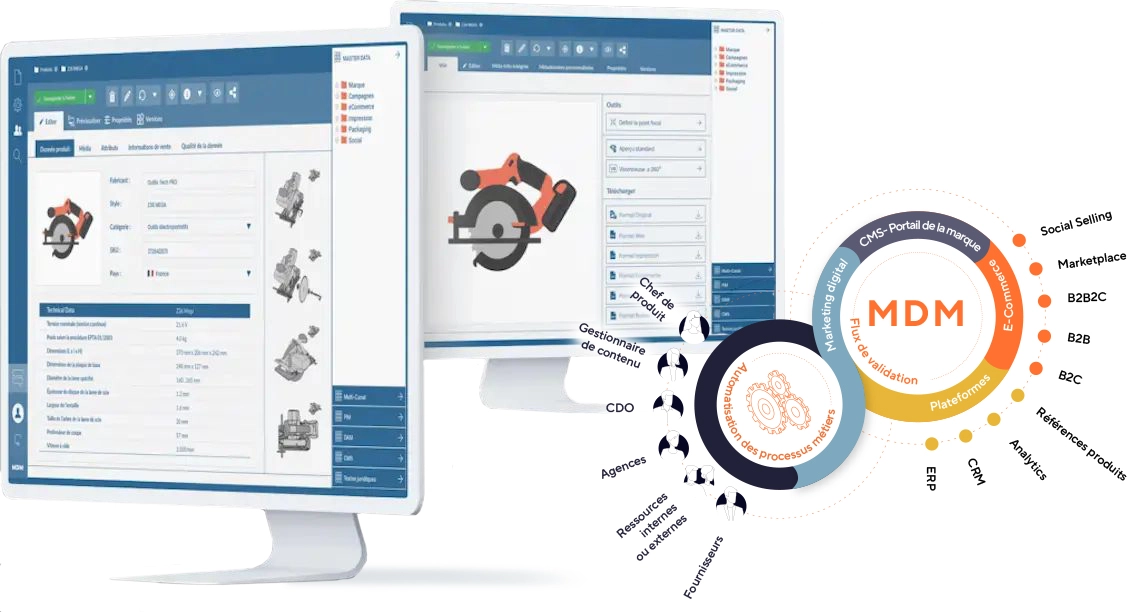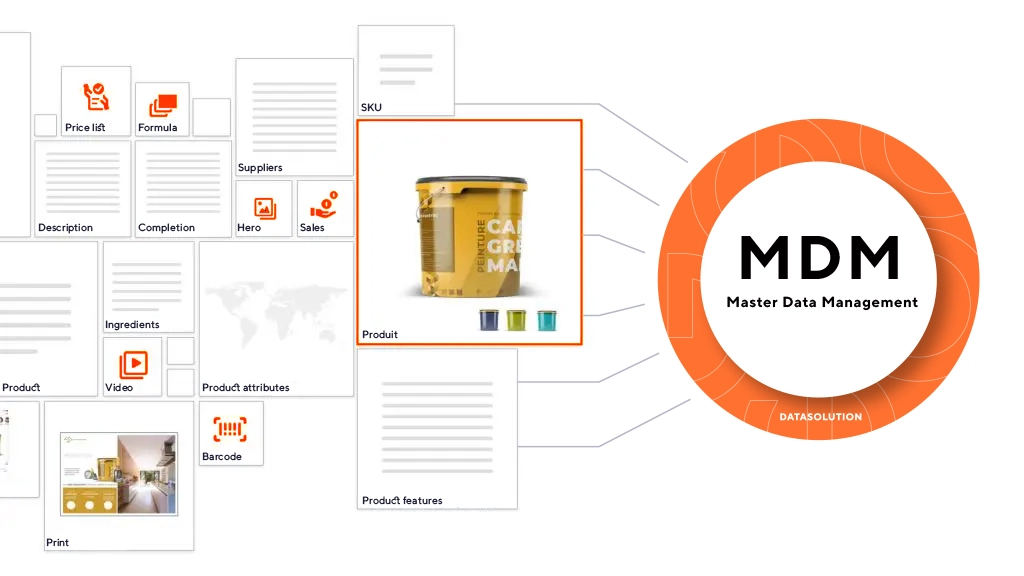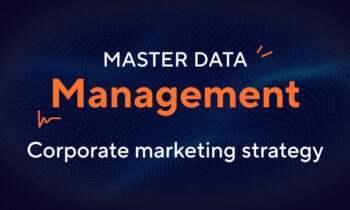What is Master Data and why is it essential?


Product information, customer information, supplier data, financial data, digital assets… Companies collect and store various types of essential data to support their growth and development.
But why is good data management so important? How can businesses fully leverage the richness of master data?
Definition of master data
Master data, also known as reference data, refers to the strategic data a company holds. It is distributed across the information system and used within business software across the organization. Master data can include various types of marketing-related information, such as:
- Supplier data: orders, inventory, invoices, and tax details
- Customer data: names, emails, shipping addresses, order history
- Location data: legal information, geographical variations
- Analytical data: metrics to measure, analyze, and optimize processes and strategies
- Digital assets: media files used for communication, marketing, and sales
- Product data: product descriptions, models, colors, sizes, prices, units of measure, schematics, manuals, etc.
- Legal data: standards, regulations, legal mentions
- Translations: content in various languages
Today, data quality is at the core of the process. Approximately 82% of business leaders cite data quality improvement as a key area for progress within their organizations (*The Economist). Master data creates value by enriching transactional data.
Have a project?
Request your personalized audit.
Why is master data management important for companies?
The most commonly used data management systems are siloed architectures and master data management (MDM) solutions.
The issue with silo structures is that they segregate data by department. As a result, data is not unified, and systems don’t communicate with each other.
While silos were once widely used by large companies, today they lead to poor strategic decisions. With siloed data, it becomes difficult to identify the correct version of information, especially due to duplicates and outdated records.
Employees face challenges accessing the information they need, causing time and productivity loss. Additionally, customer relationships suffer, and marketing campaigns lose effectiveness.
Proper master data management ensures the growth and sustainability of a company. For businesses navigating multichannel challenges, the best solution is to adopt a centralized master data management process.
Why do companies implement a single source of truth?
There are several reasons why companies choose to deploy a single data repository, often as part of their digital transformation. Data is a key asset for organizations of all sizes.
A single source of truth can help companies:
- Personalize and manage customer/product experiences
- Optimize customer processes
- Reduce time to market
- Lower marketing costs
- Optimize the supply chain
How to manage master data (master data management)?
The best solution for master data management is MDM (Master Data Management). MDM eliminates siloed architectures, ensuring data is no longer scattered or difficult to access.
In simple terms, MDM creates a common language across the organization. It centralizes information, removes duplicates, and updates master data in real time.
Instead of storing the same data across multiple systems, MDM consolidates it into a single master file, simplifying the company’s organization. Standardized values are then available to all applications within the information system.
What are the benefits of MDM for businesses?
With MDM, company stakeholders gain access to reliable, up-to-date data on customers, products, suppliers, and more. This ensures that employees can quickly access accurate information, improving productivity.
The role of master data management is to simplify the management of strategic data while maintaining data quality and governance. MDM ensures data traceability and security.
Implementing a single source of truth with MDM
Deploying a single data repository through an MDM solution is a large-scale project.
Do you have a master data management project? Are you planning to implement an MDM solution in your company?
We offer tools to simplify master data management and storage.
Get a personalized demo to gain a comprehensive overview of how MDM can benefit your business!

Need help defining your MDM project? Contact our experts!


